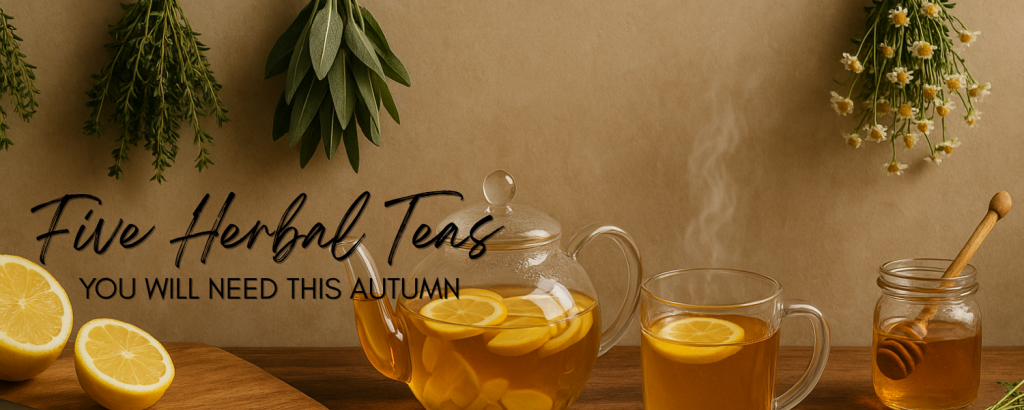
When the weather turns cold, a sore throat or cough can appear overnight. Herbal teas can’t replace medicine when you’re seriously unwell, but they can make a real difference to how you feel. Some herbs are proven to ease cold and flu symptoms, support the immune system, and help you rest. This cold and flu season, here’s five herbal teas that you will need this Autumn.
This guide focuses on herbal teas that are safe for adults, easy to prepare at home, and supported by evidence rather than hearsay.
1. Thyme Tea for Coughs and Congestion
Thyme isn’t just for roast chicken. It’s a powerful herbal ally for chesty coughs and sinus congestion. The herb contains thymol, a compound with antibacterial and expectorant properties. Studies show that thyme can help the body loosen mucus and reduce inflammation in the airways.
How to make it:
-
1 teaspoon dried thyme (or 2 teaspoons fresh)
-
250 ml boiling water
-
Steep for 10 minutes, strain, and sip slowly
Add a spoonful of honey if you have a sore throat. Honey also has antibacterial effects and soothes irritation.
Reference: National Center for Biotechnology Information (NCBI) – Thyme for respiratory infections
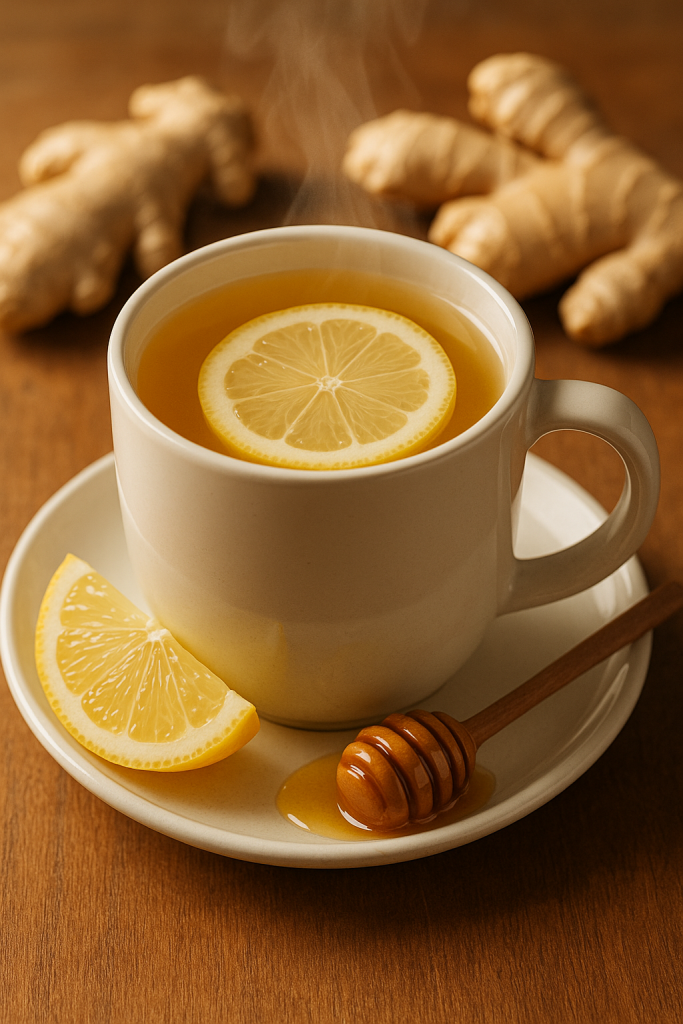
2. Ginger and Lemon Tea for Early Cold Symptoms
When you feel the first tickle of a cold, reach for ginger. It increases circulation, warms the body, and may help your immune system respond faster. Lemon adds vitamin C and a refreshing taste.
How to make it:
- 3–4 thin slices of fresh ginger root
- Juice of half a lemon
- 250 ml boiling water
Steep the ginger for 10 minutes before adding lemon juice. Drink it hot.
Ginger tea can also help with nausea and mild headaches.
Reference: Johns Hopkins Medicine – Benefits of ginger
3. Elderflower and Peppermint Tea for Fevers
Elderflower and peppermint make a light, floral tea that encourages gentle sweating — helping your body regulate temperature during a mild fever. Elderflower is also a traditional remedy for sinus pressure and runny noses.
How to make it:
-
1 teaspoon dried elderflowers
-
1 teaspoon dried peppermint
-
250 ml boiling water
Steep for 5–7 minutes, strain, and drink warm.
You can add a little honey if you like.
Reference: European Medicines Agency – Elderflower traditional use monograph
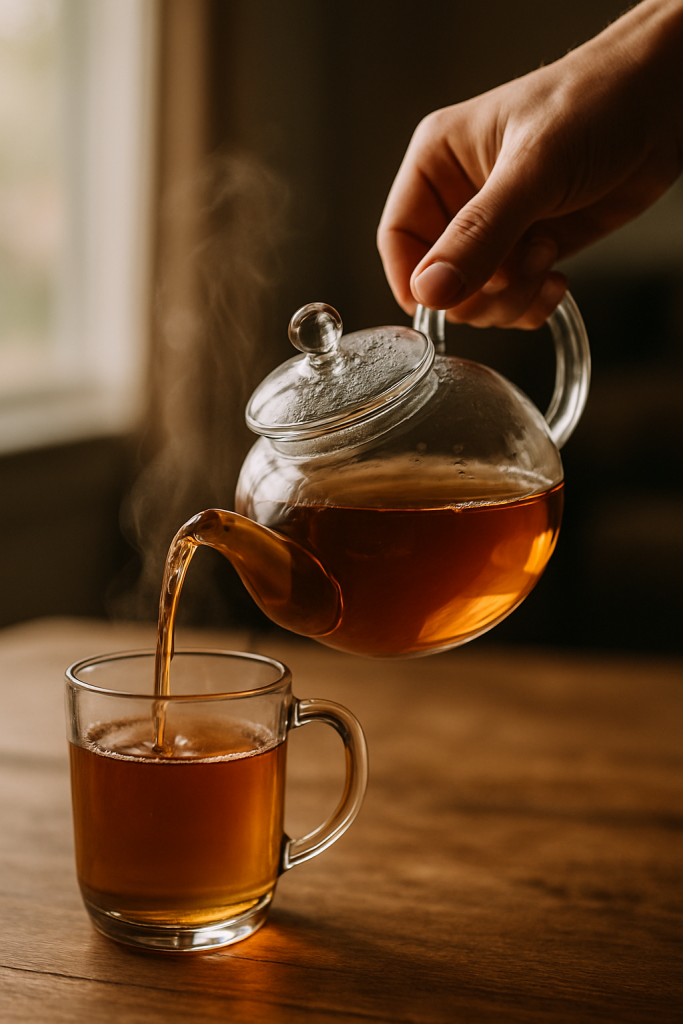
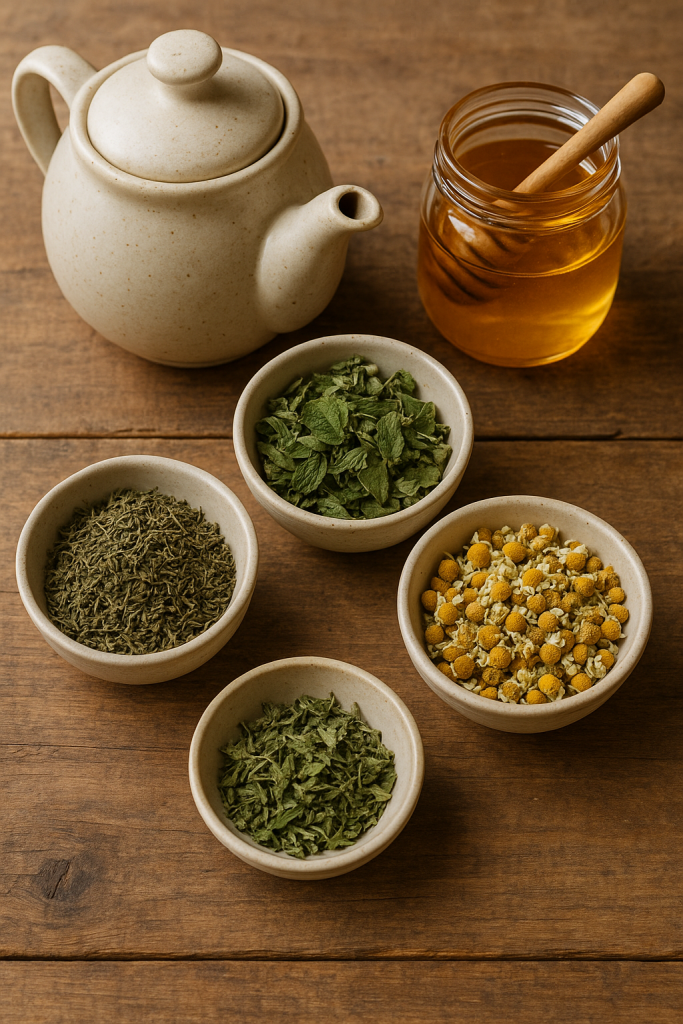
4. Liquorice Root Tea for Sore Throats
Liquorice root has been used for centuries to calm sore throats and dry coughs. It helps coat the throat and reduce irritation. It also has mild anti-inflammatory effects.
How to make it:
-
1 teaspoon chopped liquorice root
-
250 ml boiling water
Steep for 10–15 minutes, strain, and sip slowly.
Important: Do not use liquorice root tea if you have high blood pressure, heart disease, or are taking certain medications such as diuretics or corticosteroids. Always check with your GP first.
Reference: National Institutes of Health (NIH) – Liquorice root information
5. Chamomile and Honey Tea for Rest and Recovery
When you’re ill, rest matters as much as hydration. Chamomile tea helps you relax and improves sleep quality. It may also reduce inflammation in the throat and airways.
How to make it:
-
1 tablespoon dried chamomile flowers (or 1 tea bag)
-
250 ml boiling water
Steep for 5 minutes, strain, and add honey to taste. Drink before bed for better sleep.
Reference: National Library of Medicine – Chamomile benefits
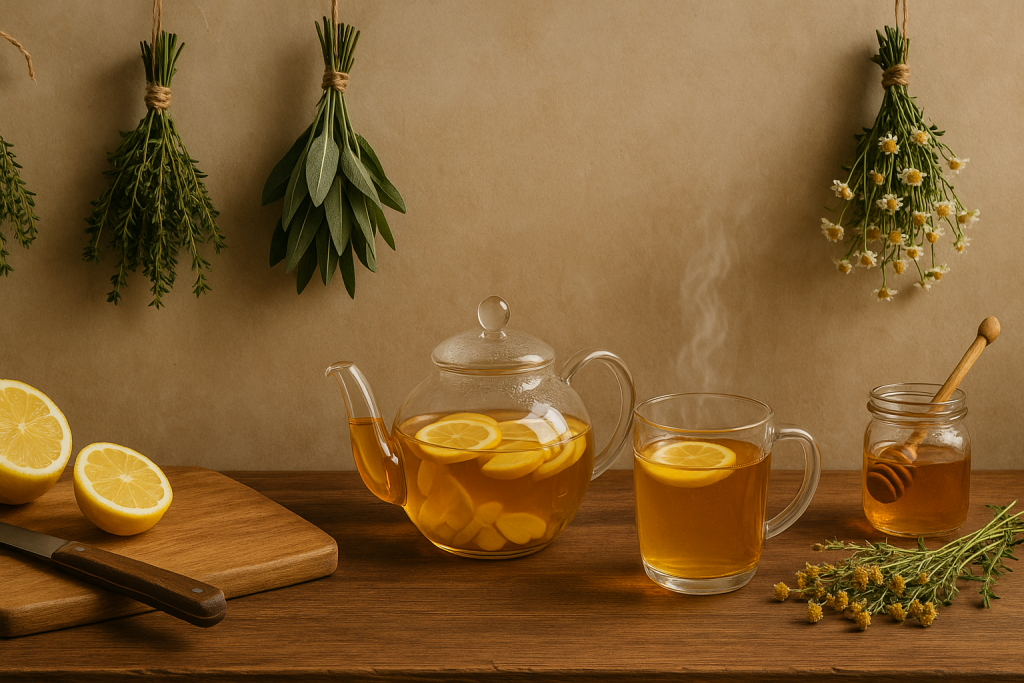
How to Use Herbal Teas Safely
Herbal teas are gentle, but they’re still active medicines. To stay safe:
-
Don’t mix multiple strong herbs at once. Choose one or two.
-
Avoid herbal teas if you’re pregnant or on prescription medication without checking with your GP or pharmacist.
-
Drink 2–4 cups per day at most. More isn’t better.
-
If your symptoms worsen or last more than a week, seek medical advice.
Most herbs can be bought dried from reputable UK suppliers such as Baldwins or Neal’s Yard Remedies. Always buy from trusted sources to ensure quality.
Small Steps to Build a Herbal Habit
You don’t need to become a full herbalist to benefit. Try keeping three herbs in your kitchen:
-
Thyme – for coughs
-
Ginger – for early cold signs
-
Chamomile – for rest
Store dried herbs in airtight jars away from sunlight. Replace them every 6–12 months to keep their strength.
Make one cup a day through the winter to build routine and comfort. Herbal teas work best when you start early and use them regularly.
Herbal teas can’t cure colds or flu, but they help your body manage symptoms and recover more comfortably. The warmth, hydration, and active plant compounds work together to ease the strain on your immune system.
When combined with rest, good nutrition, and plenty of fluids, these simple teas can help you get back on your feet faster.
